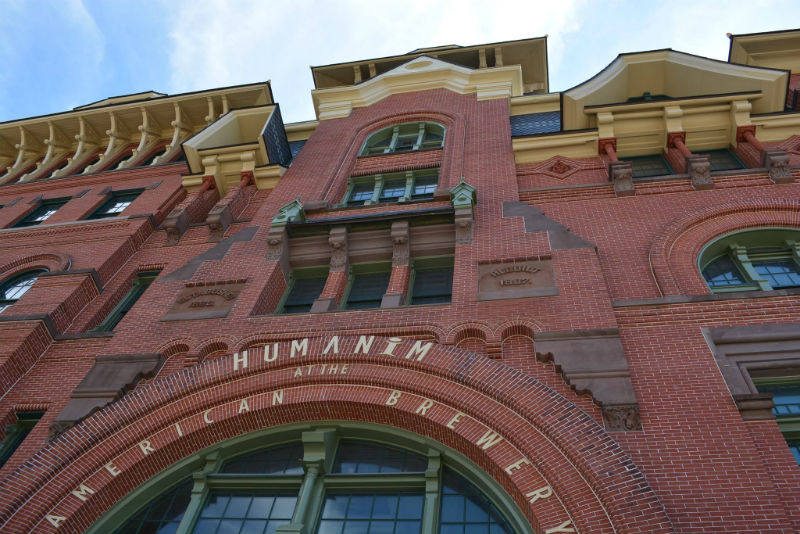Last year, Preservation Maryland and our partners from across the country worked with members of Congress to retain the Historic Tax Credit (HTC) in a reformed tax code. While we were successful in keeping the HTC as a permanent tax credit, the credit is now taken over 5 years, resulting in a loss of value.

Maryland Senator Ben Cardin at the Phillips Packing Plant, Historic Tax Credit project on Maryland’s eastern shore.
In response to the weakening of the HTC, last June, Maryland Senator Ben Cardin joined with a bi-partisan group of legislators from around the nation to introduce legislation that would substantially improve the federal historic tax credit. The new legislation would enhance the value of historic tax credit investments from urban cores to rural Main streets across the country, while also keeping most of the associated cost savings from the tax reform modifications in place. The legislation would also eliminate burdensome adjusted basis requirements of the credit which have the effect of preventing smaller rehabilitation projects from taking advantage of the program. This change would enhance the value of all HTC transactions, attract more capital from tax credit investors, simplify how the credit functions, and improve how the credit pairs with other economic development programs such as the Low-Income Housing Tax Credit and new Opportunity Zone incentive.
After the 2018 elections, sponsors anticipate an opportunity to attach the Tax Credit Improvement language to a larger legislative package that could possibly move through Congress during the year-end Lame Duck session. Support for the legislation needs to come from both sides of the aisle to improve its chances of enactment.
TAX CREDIT FACTS
- The Historic Tax Credit (HTC) provides owners of historic buildings with an incentive to invest in the difficult task of rehabilitating their properties according to the Secretary of Interior’s Standards for Rehabilitation.
- While the 20 percent historic tax credit was maintained in the final tax reform bill, it was modified, and this is expected to reduce the amount of reinvestment flowing into our historic communities and neighborhoods.
- Presently, the tax code requires that building owners subtract the amount of federal historic tax credits from a building’s basis (the amount a property is worth for tax purposes). Eliminating this requirement will increase the basis of rehabilitated historic buildings for building owners, providing a tax benefit, and attract more capital from tax credit investors. Rep. LaHood (R-IL) and Rep. Blumenauer (D-OR), and Sen. Cassidy (R-LA) and Sen. Cardin (D-MD), have introduced the Historic Tax Credit Enhancement Act (H.R. 6081 and S. 3058) to eliminate the basis adjustment for federal HTC transactions.
- This legislative change still preserves the vast majority of the savings achieved by the Tax Cut and Jobs Act and eliminating the basis adjustment will also bring the HTC in line with the Low-Income Housing Tax Credit (LIHTC), which does not require a basis adjustment.
- Enacting this legislation will strengthen the credit and improve the incentive for building owners who are revitalizing historic properties in communities nationwide. Please co-sponsor the Historic Tax Credit Enhancement Act, sponsored by Cassidy/Cardin in the Senate (S. 3058) and LaHood/Blumenauer in the House (H.R. 6081).
GET INVOLVED & TAKE ACTION
Preservation advocates are encouraged to contact their members of congress to express support for the proposal and to ask them to add their name as a co-sponsor the Historic Tax Credit Enhancement Act (H.R. 6081 and S. 3058).

